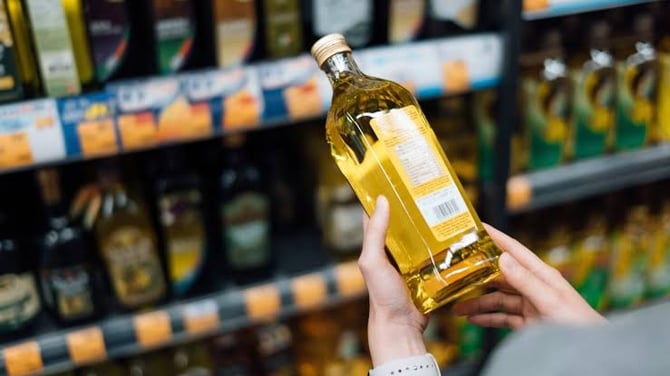Olive Oil Prices Set to Fall By as Much as Half

Global olive oil prices, which hit record highs earlier this year, are expected to drop by as much as 50% in the coming months, according to Spain's Deoleo, the world’s largest olive oil producer.
This anticipated decline follows a turbulent period marked by climate-driven droughts, soaring inflation, and high interest rates that disrupted supply chains and pushed prices skyward.
In January, olive oil prices in the EU were 50% higher year-on-year, while in the UK they had surged 150% since late 2021. Spain, responsible for nearly half of global production, suffered from two consecutive years of drought, facing drastically reduced harvests and sending global prices soaring. However, improved weather conditions this year have signaled a stronger harvest for the 2024-2025 season with market participants hopeful for a return to market stability.
Deoleo expects prices to start easing between November and January as new supply enters the market, assuming favorable weather continues. Although tensions remain in premium segments like Extra Virgin olive oil, broader price relief is expected. The company predicts prices at origin will normalize as the harvest progresses.
What Does This Mean for Me?
Other Mediterranean producing countries are dealing with a mixed bag of outcomes. Greece continues to grapple with drought, dimming hopes for a major recovery, while Turkey, which rose to become the second-largest producer last year, forecasts a record-breaking yield of 475,000 tonnes. This output reveals how much the dynamics are changing in the global olive oil market, which is being driven by different and often unpredictable regional conditions.
More News
.webp)
Japan’s Rate Shift Is Rippling Through Global Bond Markets

China’s Growth Engine Stalls as Consumers and Investors Pull Back

Egypt’s Recovery Gains Traction as Household Pressure Lingers

OECD Warns AI and Tariffs Will Test the Global Economy

Zero Tariffs, Higher Drug Bills as US and UK Reset Pharma Trade

Catastrophe Bonds Go Global as Climate Risk Meets Yield Hunting
.webp)
Canada Shields Steel and Lumber Industries From Tariffs
